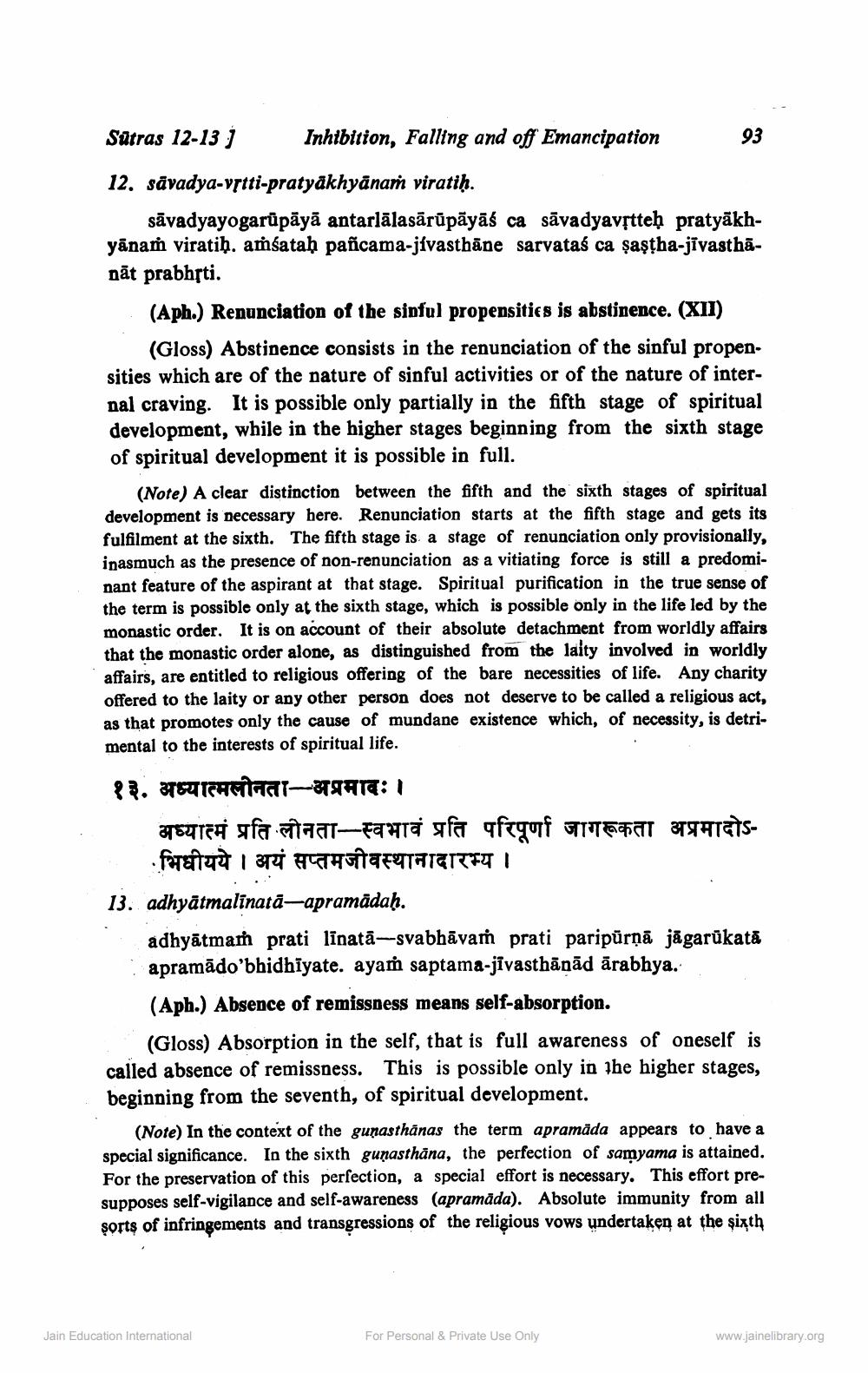________________
Sutras 12-13
Inhibition, Falling and off Emancipation 93 12. sāvadya-yrtti-pratyakhyānaṁ viratiḥ.
sāvadyayogarūpāyā antarlālasārūpāyāś ca sāvadyavstteḥ pratyākhyānam viratih. ambatah pañcama-jívasthāne sarvataś ca şaştha-jīvasthānāt prabhsti.
(Aph.) Renunciation of the sinful propensities is abstinence. (XII)
(Gloss) Abstinence consists in the renunciation of the sinful propensities which are of the nature of sinful activities or of the nature of internal craving. It is possible only partially in the fifth stage of spiritual development, while in the higher stages beginning from the sixth stage of spiritual development it is possible in full.
(Note) A clear distinction between the fifth and the sixth stages of spiritual development is necessary here. Renunciation starts at the fifth stage and gets its fulfilment at the sixth. The fifth stage is a stage of renunciation only provisionally, inasmuch as the presence of non-renunciation as a vitiating force is still a predominant feature of the aspirant at that stage. Spiritual purification in the true sense of the term is possible only at the sixth stage, which is possible only in the life led by the monastic order. It is on account of their absolute detachment from worldly affairs that the monastic order alone, as distinguished from the laity involved in worldly affairs, are entitled to religious offering of the bare necessities of life. Any charity offered to the laity or any other person does not deserve to be called a religious act, as that promotes only the cause of mundane existence which, of necessity, is detrimental to the interests of spiritual life. PR. PEUTICHMITAT-TFATE: 1
अध्यात्म प्रति लीनता-स्वभावं प्रति परिपूर्णा जागरूकता अप्रमादोऽ
भिधीयये । अयं सप्तमजीवस्थानादारभ्य । 13. adhyātmalinatā—apramādaḥ.
adhyātmam prati linatā-svabhāvam prati paripūrņā jāgarūkată apramādo'bhidhīyate. ayam saptama-jīvasthānād ārabhya. (Aph.) Absence of remissness means self-absorption.
(Gloss) Absorption in the self, that is full awareness of oneself is called absence of remissness. This is possible only in the higher stages, beginning from the seventh, of spiritual development.
(Note) In the context of the gunasthānas the term apramäda appears to have a special significance. In the sixth gunasthāna, the perfection of samyama is attained. For the preservation of this perfection, a special effort is necessary. This effort presupposes self-vigilance and self-awareness (apramäda). Absolute immunity from all sorts of infringements and transgressions of the religious vows undertaken at the sixth
Jain Education International
For Personal & Private Use Only
www.jainelibrary.org




